A RESEARCH BASED
ORGANIZATION
The Baldwin Research Institute History
AN IDEA THAT TURNED INTO A MOVEMENT
-
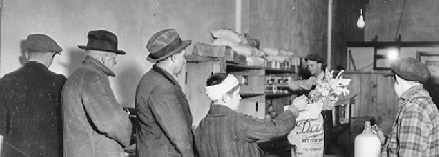
1989
Baldwin Research Founded: Adhering to AA's Big Book -

1991
The Message of Self-Directed Change Rubs the Old Guard the Wrong Way -
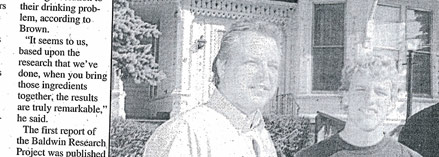
1992
GATHERING RESEARCH TO INCREASE PROGRAM EFFECTIVENESS -

1992
BUILDING THE CORRECT RETREAT ENVIRONMENT -

1996
BRI Breaks free of alcoholic anonymous -
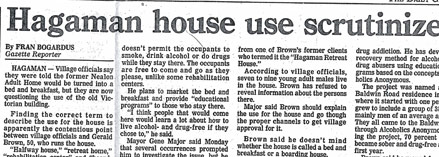
2000
BRI OFFICIALLY REJECTS ALCOHOLICS ANONYMOUS TEACHINGS -

2004
BRI Defines Learned Connections: A Cultural Paradigm -
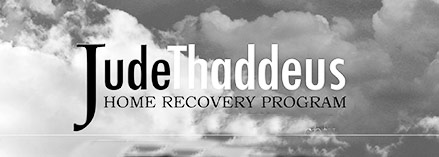
2005
THE 10th EDITION OF THE JUDE THADDEUS PROGRAM PUBLISHED -

2005
PROVEN SUCCESS: BRI PUBLISHES INDEPENDENTLY VERIFIED SUCCESS RATES -

2007
PUBLISHED THE 11th EDITION OF THE JUDE THADDEUS PROGRAM -

2008
BRI DEFINES ITS STANCE ON THE CAUSES OF ADDICTIOn -

2008-2009
PUBLISHING THE 12TH AND 13TH EDITIONS OF THE SAINT JUDE PROGRAM -
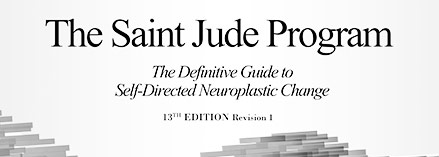
2014
PUBLISHING THE 13TH EDITION: DETAILING THE ACTUAL CAUSES OF SUBSTANCE USE -

REMARKS
YOU ARE IN CONTROL, AND ALWAYS HAVE BEEN! - THE MIND IS THE VEHICLE FOR FREEDOM
AN INTRODUCTION TO OUR HISTORY
This is where Baldwin researchers nearly 30 year odyssey of drug and alcohol research began, 1989.
The questions are these:
- Can anyone or anything help someone who heavily uses drugs and/or alcohol?
- Does Alcoholics Anonymous work?
- Does counseling work?
- Does drug and alcohol treatment work?
- Does incarceration work?
- Do religious endeavors work?
- Does enabling work?
- Does "tough love" work?
- Does psychiatry work?
- Does acupuncture work?
- Does massage therapy work?
- Do sweat lodges work?
- Does medication work?
- Does some other obscure method work?
Baldwin Research has determined during its nearly 30 years of research many or all of the previously listed techniques may give the illusion of success for some users and not for others. However, consider that before drug users and/or alcohol users submit themselves to drug and alcohol treatment of any kind, they first must process a cognitive thought that allows for the possibility of the user changing his/her substance use behaviors. More about that later! But first, come to understand that the Baldwin researchers' mission was (and is) to study drug and alcohol use and those who participate in drug and alcohol use and, further, to identify methods that actually help drug and/or alcohol users.
When discussing drug and/or alcohol use research and abstinence rates, first it is important to acknowledge that all social research is flawed for reasons discussed throughout the first few chapters of this history. Second, those who research human behavior and rely on self-reporting must accept that all results produced by such studies are flawed. All studies of human behavior within a controlled environment or controlled study are flawed because the control or the environment or the study always affects outcome. Does this mean, then, that studying social behaviors is without value? Certainly not! But one must know, and report on, the limitations of the techniques (rules) that frame such studies.
Although it is not definitively known, maybe 20% of the US population has a problem with one substance or another. As for how many people lie, it could be approaching 100%, but most experts suggest perhaps 20% of the adult population don't lie (or don't lie with any frequency). Some of the non-lying population may also be substance users. As such, if you were to ask a question of a substance user in the non-lying population you would get the truth as it was known at the time. Let's say you're doing a study to find out how many people stay sober after completing a drug and alcohol treatment program, so you ask one of the post-program substance users if he used any substances post program. He promptly responds, "No, I haven't." Unbeknownst to you, the one you asked is in the non-lying population.
Now, here's the problem: You have no way of knowing whether you received the truth or a lie. Even though you did get the truth – you can't know that.
Consider that truth and lies are productions of the mind and as such the only one that knows whether or not it's the truth or a lie is in the mind of individual who thought the thought. The argument is often made that one person can tell another what they are thinking, but can, in fact, that happen? Suppose the study subject is further queried: Is your report of not using substances since attending the program true? To which he answers, "Yes." Even though the test subject, who is in the non-lying population, answered both questions truthfully, the answers given are no more valid to the study than had the answers been lies.
So here are the variations of the total study population: some will lie when responding to the study inquires; some will be truthful, and some will be truthful to some questions and lie to others. Inasmuch as there is no reliable method to determine what is going on in someone else's mind, self-reporting human behavioral studies cannot be concerned with the truthfulness of the responses from study subjects. The responses, without regard for truthfulness, must be accepted "as is," and although it might appear to be useless information, in fact, it is not. And, just because the data may be fraught with untruths, that fact does not relieve the researcher from responsibly and honestly analyzing and reporting on the data that the researcher receives. So what can be discovered from data that would appear, at first glance, to be totally corrupt? Actually, quite a lot! Such is the case with the Baldwin Research Institute Funded Studies. But first it is appropriate to explain what happened that got BRI researchers to a point where Baldwin Research Institute Funded Studies became necessary.

